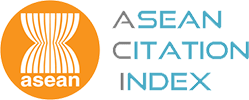Distinct Mechanism between Arterial and Venous Thrombosis: Impact for Clinical Manifestations
M. Taufik Ismail(1*)
(1) Department of Cardiology and Vascular Medicine, Faculty of Medicine, Public Health and Nursing, Universitas Gadjah Mada – Dr. Sardjito General Hospital, Yogyakarta, Indonesia
(*) Corresponding Author
Abstract
Hemostasis is a complex physiological process aiming to keep the integrity of a closed circulatory system after an occurrence of vessel wall injury. Hemostasis involving the role of circulating platelets and coagulation cascade.1 There are two major pathways that act independently to activate the platelet. The first pathway is mediated by collagen and the other by tissue factor. After intimal layer injury, platelets are recruited through the interaction between platelet’s surface glycoprotein (GPVI and GPIb/V/IX) with collagen and von Willebrand factor. This process results in adhesion of platelets in the site of injury. Further recruitment of platelets is achieved by secretion of aggregatory mediators such as thromboxane A2 and adenosine diphosphate.
Full Text:
PDFArticle Metrics
Refbacks
- There are currently no refbacks.
Copyright (c) 2019 M. Taufik Ismail

This work is licensed under a Creative Commons Attribution-ShareAlike 4.0 International License.
ACI (Acta Cardiologia Indonesiana) is indexed by:
ACI (Acta Cardiologia Indonesiana) is published by:
Department of Cardiology and Vascular Medicine, Faculty of Medicine, Public Health and Nursing, Universitas Gadjah Mada, Yogyakarta, Indonesia
Address: Radiopoetro Building 2nd Floor, West Wing, Farmako Street, Sekip, Yogyakarta, Indonesia 55281
ACI (Acta Cardiologia Indonesiana) is endorsed by:











